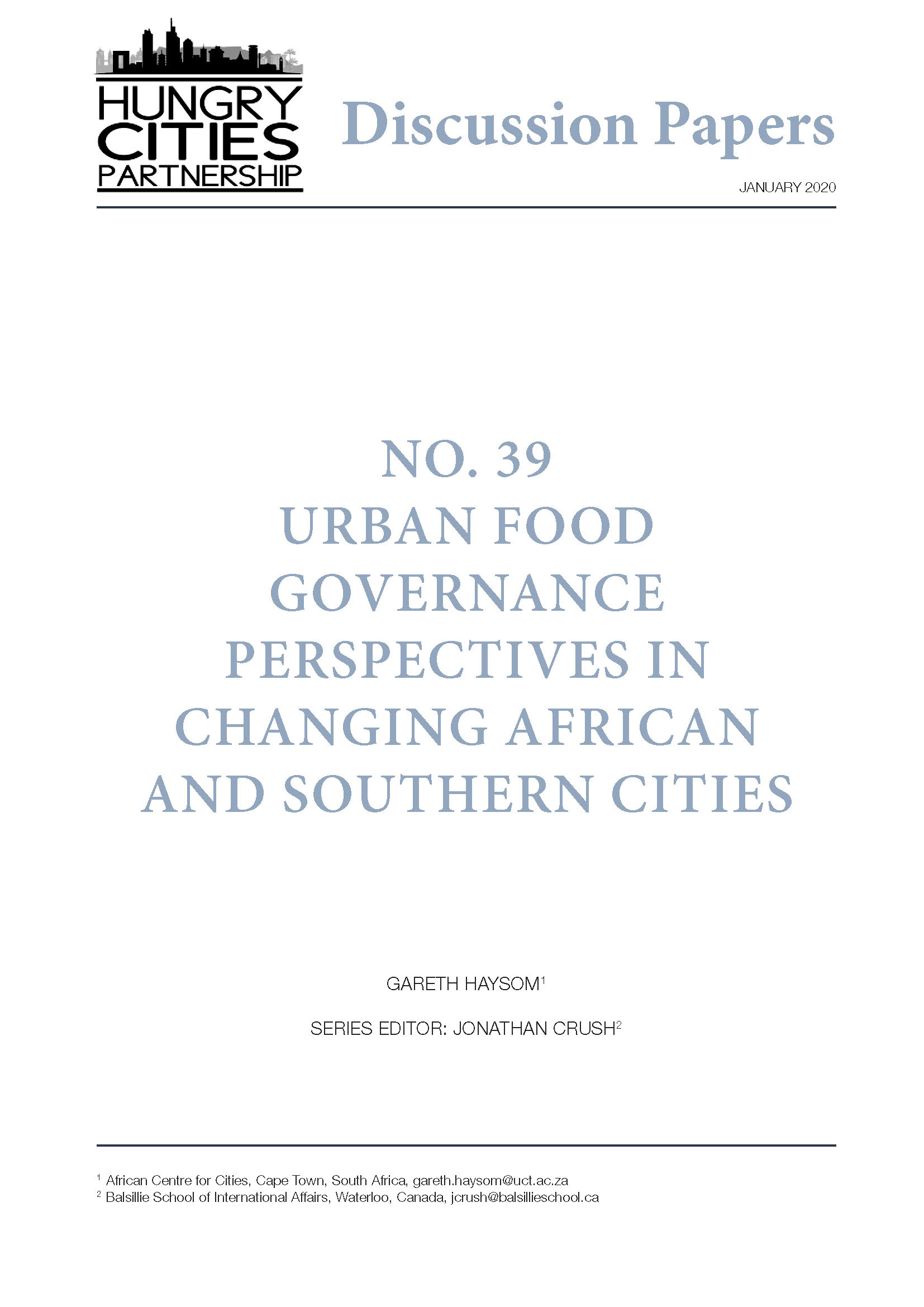The key urban food governance question in African and other Southern cities is understanding the role that appropriate infrastructures could play in delivering positive outcomes in the urban food system. This discussion paper looks at urban food governance needs in African cities and reflects on the governance actions required in order to respond to wider food system changes and challenges. It argues that food in the African city is a public good and discusses the role that a state (and city government) should play in enabling access. The paper finds that the normalization of food poverty, the absence of agency, the limited political weight of urban areas, and resource constraints, mean that citizens are unlikely to mobilize to contest food poverty and insecurity, and this absence of civic action means that the state is unlikely to see urban food issues as political, requiring a proactive city or state level response. Shifting the focus from food projects to seeing food as a lens to understand the role that infrastructure plays in food system outcomes opens up new areas for urban governance in planning, health, retail and other areas where city governance actors have a direct mandate.

